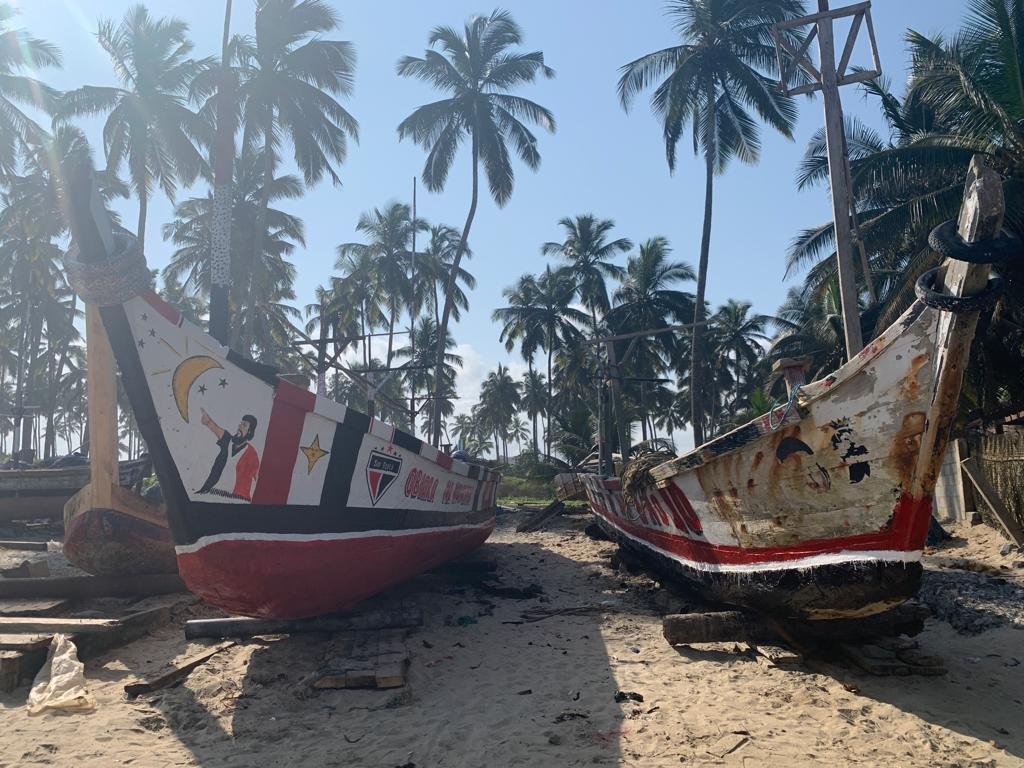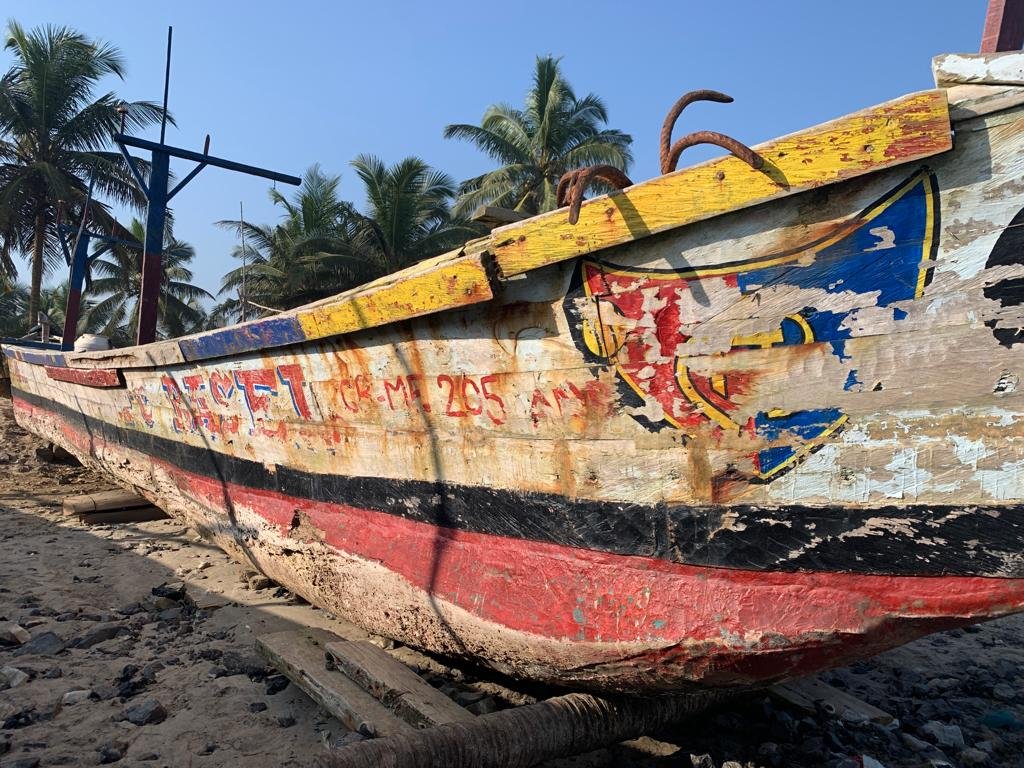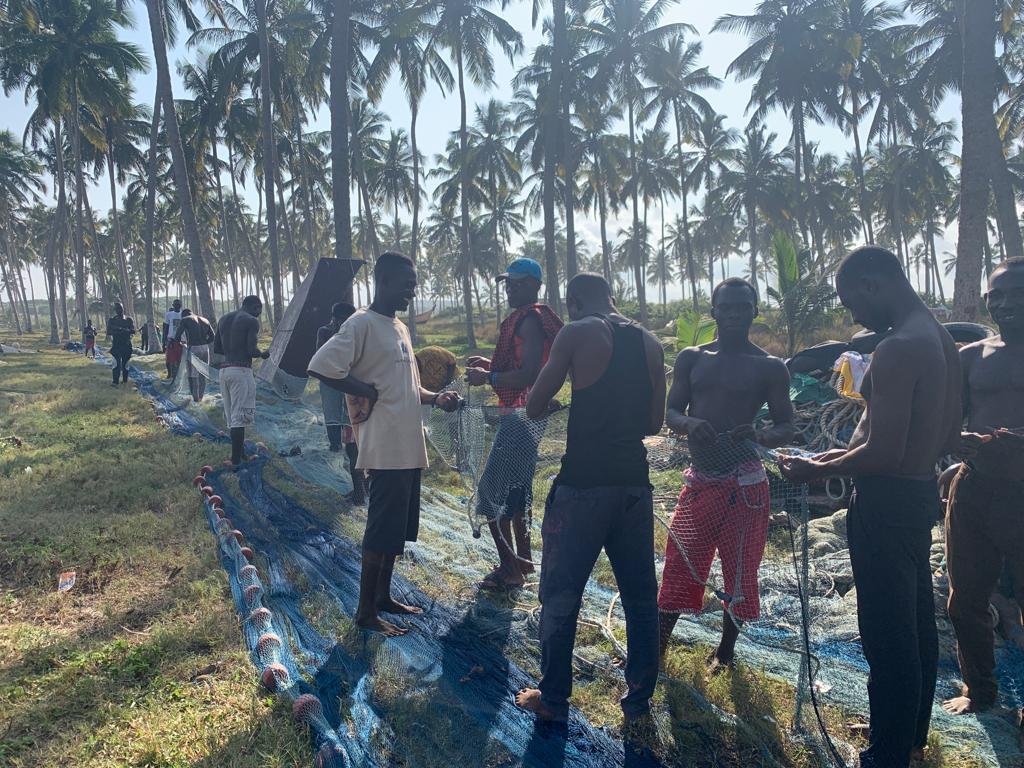Communication is diverse, a fact that many around the world fail to recognize. The people of Ghana, however, not only recognize and furthermore appreciate this, they celebrate it.
Yes, we may communicate through sounds produced by our vocal cords. Yet, communication, when thought of as a concept as opposed to an absolute, allows us to exchange information and feelings with one another in an abundance of ways; through our hands, a gentle palm on the shoulder; through our eyes, an affirmation of friendship; through our smiles, a disarming ‘akwaaba’ to all who visit this country. Communication here is high context, visceral, profound, and never superficial.
We finally reached the beach after a long drive from Accra. I am drawn to a fleet of fishing boats lined up in unison. I admire the craftsmanship behind them. I lean in and see the hand-hewn beams of the hull. I run my hand along the uneven wood and can feel and hear the men who created them. Each boat tells a story.
The sound of humming suddenly catches my attention. I wander behind the boats and, underneath a pasture of palms, I see some 30 men stitching a long fishing net. I approach them. They first ask for money. Away from the group, I’m a little intimidated, but I persist. I lead with a smile and ask them what they are doing. They come closer, interested in who I am. I’m a little surprised that nobody understands English. Fante is the language spoken here. I mention my Ghanaian day name, which is Kwabena. They smile and come closer, excited that I have introduced myself in a way they can understand. A hand comes up further down the line of men. “Kwabena,” he says, pointing to himself. The man right in front of me points to his comrade to my left. “He’s Kwabena.” We exchange smiles. Another Kwabena appears. There are several of us. One more barrier broken.
Ghana’s most unique form of communication must be its transmission of feelings, ideas and meaning through music and dance. Music and dance as a concept, that is. It is not that Ghana has more of this than anywhere else, but it is a culture that discovers value in the everyday, inspiring people to find meaning in the sonic patterns and acoustic vibrations that exist all around us. These are given life through the minds and souls of the people and, in return, they become the heartbeat of the culture.
I’m awoken by the call to prayer in the early morning before traveling to Cape Coast Castle. I’m unable to fall back asleep, but I close my eyes and the sounds begin to appear. Listen closely, and you may summon them to your attention. The clipping of a ceiling fan as it whirls round communicates a rhythm…
Music - the arrangement of sounds with melody, rhythm and harmony - exists for myriad reasons. For most, it is a form of entertainment. For Ghanaians, it exists to help them save themselves. Without music, there would be no Ghana.
An impromptu dance party held on the balcony of Auntie Mercy’s Shebeen overlooking the Cape Coast was followed by a 45-minute bus ride to our hotel. It was late and we were all tired from a long day. We piled into the bus, prepared for a long slog back over the nighttime roads. For me, the purpose of this ride was to reach our destination. But for Kwesi and Dela, the purpose was different. Behind the djembe in the back of the bus, Kwesi began to pound out a beat. Dela joined him with the frikyiwa, helping to set the rhythm. They began to sing…
This 45-minute journey for them was an opportunity. Perhaps to break up the monotony; to shame the silence; to give us all a kick; to plant an everlasting memory in our heads... This journey home became about process. It strengthened our bonds and reaffirmed our collective friendship that had been building over the last several days. It allowed us to save ourselves.
Few places ask for one to be present like Ghana does. To truly experience all that Ghana has to offer, you must open yourself up, listen more closely to your intuitive self, connect more closely with your spiritual side. You begin to exercise certain parts of the mind, and especially the body, that you may not be used to using. You must surrender to a different form of communication and grow accustomed to the unconstrained energy of everyday life. These are all beautiful and transformative if you are willing to join the dance.
Tom Flint
Film School Manager at Raw Art Works
Founder of Filmbuilding
Cape Coast, Ghana


